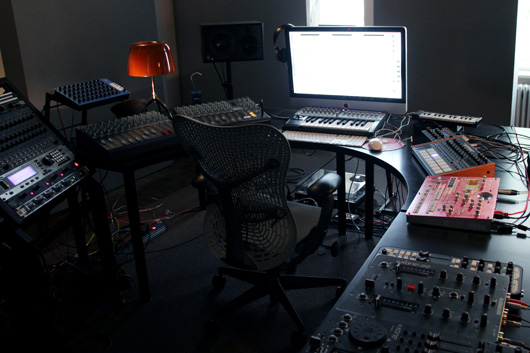In the Studio: Magda
On a day-to-day level, it’s easy to overlook the impact of Magda (a.k.a. Magdalena Chojnacka). […]
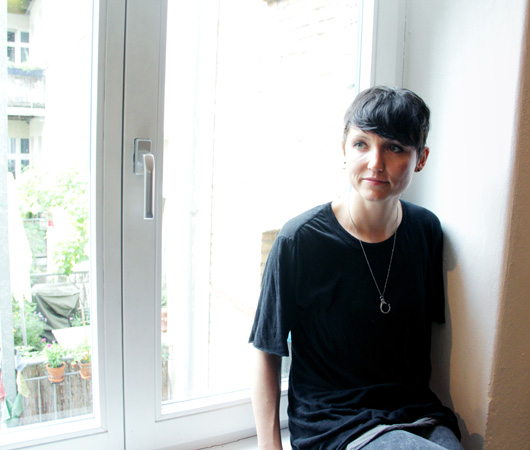
On a day-to-day level, it’s easy to overlook the impact of Magda (a.k.a. Magdalena Chojnacka). That’s not a slight, as the Polish-born, Detroit-reared artist has been a major force in electronic music for more than a decade. It’s just that she carries herself in a decidedly un-flashy fashion, allowing the focus to instead remain on her DJ/production prowess and varied musical palette. Magda will likely always be remembered for her association with Richie Hawtin and the Minus crew, but last year, she made a move toward greater independence, launching the Items & Things imprint with fellow Minus breakways Marc Houle and Troy Pierce. Curious for more details, not to mention eager to get a look at the place where she cooks up her tunes, we paid Magda a visit at her Berlin studio over the summer, where she told us about her production history, studio setup, music-making process, and the piece of gear that changed her life.
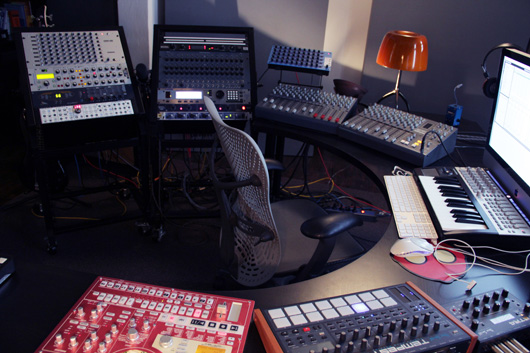
XLR8R: When did you start producing music?
Magda: I started producing with Marc Houle in the late ’90s. I didn’t really know much. I was just messing around. I was living at his house at the time, and he had a really good studio, with old synths and all kinds of fun knobs to twirl. So, I just started experimenting with some stuff, note by note.
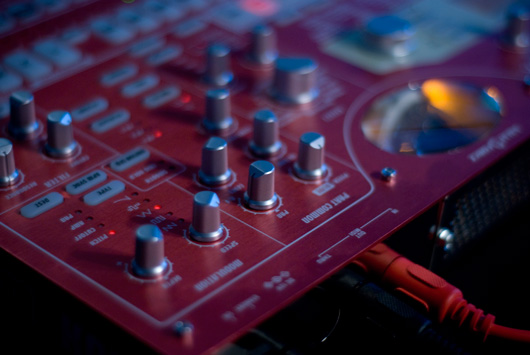
You were already DJing at that time.
Yeah, and I was also psycho-editing at that time. I was really into editing everything. So, he would make some stuff, and we would just go in—I think we used Acid—and chop everything up. He was like, “You’re crazy to spend so much time on that.” But to me, it was really fun.
Marc definitely taught me a lot about old gear and the whole concept of [music production] and just sent me on my way. Then I got into Ableton. I didn’t have any equipment. I remember the first piece of analog equipment that I bought was actually during the bus tour that we did with Minus in the States. We stopped by this gear shop and I saw this machine that I still have.
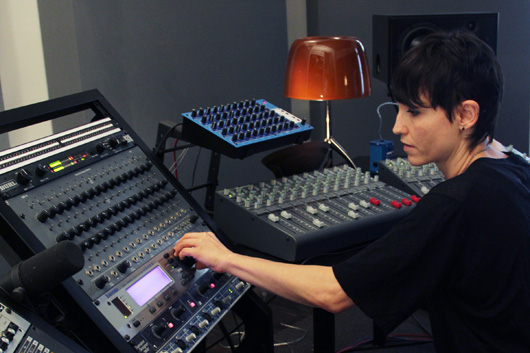
What was it?
It’s a Music and More ADX1. It’s such a nice, little, simple drum machine. There are just five different sounds, but it’s perfect to play around with. We had a little setup on the bus. Then, living here in Berlin, I still worked mainly digitally, but having that little thing, I thought, “Okay, I like working this way better. I like this hands-on experience.” Also, there were so many plug-ins and different VSTs out there that I just got overwhelmed. I got too much, and I didn’t really know how to use everything properly. I didn’t take the time to really get into one or two or a few plugins really well. It was just a mess of stuff everywhere.
At some point I decided, “This is too much. I’ve got to figure out how I want to do this.” So I started going to this gear shop here, SchneidersBuero, which is pretty addictive. You go there, and you can try out all the little synths and everything. I started buying equipment, but it took some time and a lot of experimenting. Sometimes, you read about stuff. Sometimes, you just like how it sounds. It took years, but now I really have the pieces I want and it’s a setup I’m comfortable with. I’m still into buying gear, but it’s not at such a fast pace.
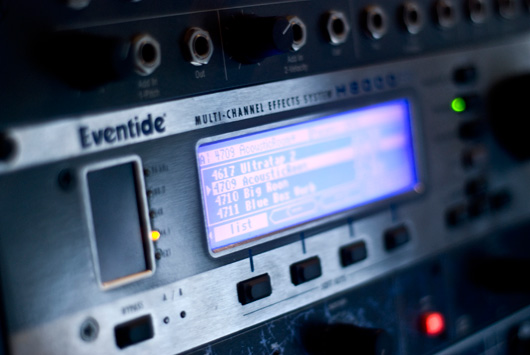
What is your favorite piece of gear?
My favorite piece of equipment is the Eventide H8000. It’s a multi-effects processor. This thing is ridiculous. Just the way it sounds, it’s crazy. It’s got thousands and thousands of reverbs, delays, multi-effects, and mastering suites. That thing, you don’t need anything else, really, you can do everything on it. Also, it’s got that Eventide sound, which is so warm and analog. It really changed my life.
Is there anything new, gear wise or technology wise, that you’re lusting after?
I want a LinnDrum. I definitely want some really high-end EQs, a nice preamp.
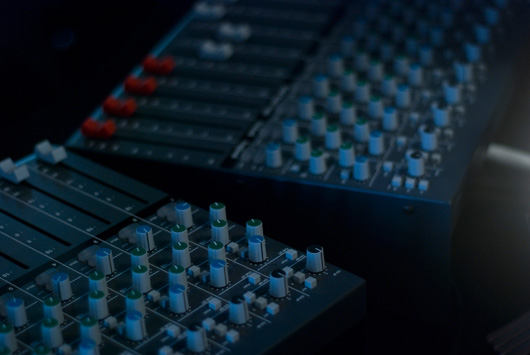
Are you still producing in Ableton?
I definitely use Ableton still, but all the sounds, they’re all analog. My AD converter goes into Ableton.
Do you not use any samples in your work?
Very rarely.
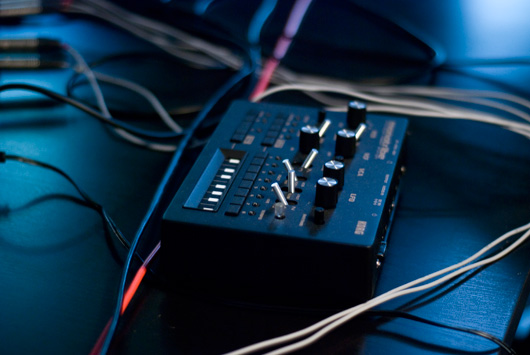
When you’re making tunes, do you have a set process?
It’s always different. But the way I’ve been working lately is I’ll make a drum pattern on one of my different drum machines and send the MIDI notes out to one of my synths, just to see what happens. I’m not sitting there, putting in note by note. I just let it go, and then I edit it down. There’s a lot of experimentation, especially with the Eventide. The thing is so great. You run one sound through it and get crazy stuff, enough to make one song. So yeah, there’s a lot of experimentation, that’s pretty much most of [my process].
You came up with Minus. Was it intimidating to learn to produce in that environment?
At the time, it was okay. It was such a small label, maybe there were just four or five of us. It was more just friends just hanging out, messing around. So, I didn’t feel any pressure. There was no, “Oh, you’ve got to put a record out now.” It was never like that. I knew I enjoyed this next step, so naturally I started to do it. I never felt I had to. Luckily for me, I was able to DJ quite a bit without having records out. It took some time for me to really learn [how to produce] properly on my own and feel comfortable.
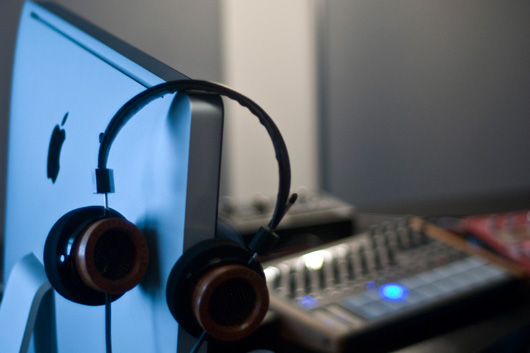
You mentioned that Marc Houle was your initial mentor.
He and I work so well together, because I’m very good at saying, “This is good. This is bad. Take this out. Put this in.” He was the technical guy. He could make five songs in 10 minutes. Sometimes, when I was DJing, I’d call him up and say, “Hey, I need an acid song for tonight.” He’d say, “What kind?” And I’d respond, “You know, late-’80s acid house.” Then he’d send me something. It’s so funny. He’s just very fast and he’s such a nerd and he’s great. So, he definitely taught me a lot.
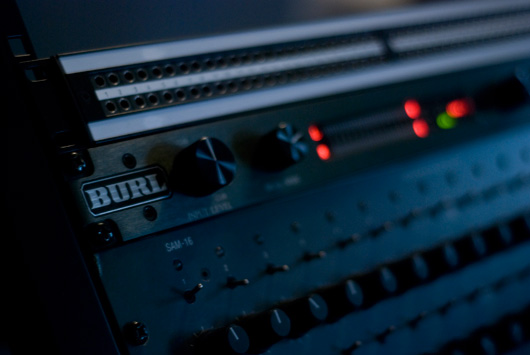
How long have you been in Berlin?
I’ve lived in Berlin for about nine years, but now, I’ve moved to Switzerland. My studio is in Berlin, so I go back and forth.
Do you think that has affected your production approach?
Absolutely. There are so many interesting people you meet here, whether they do experimental music or techno or something else. I’ve met a lot of old-school German producers who have really crazy equipment I’ve never even heard of. You just learn a lot from seeing and hanging out with them. It’s definitely been more helpful than me staying in New York or Detroit, where I probably wouldn’t have met such a wide range of people.
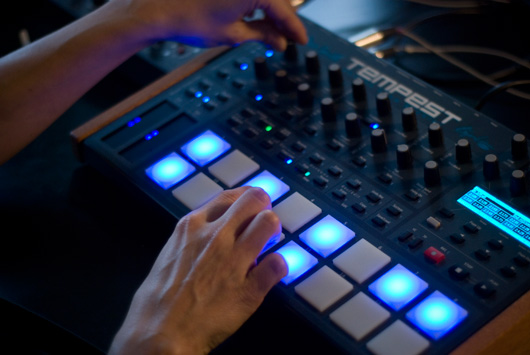
What prompted the move anyways?
Frustration. Doing parties in New York and being shut down constantly for people dancing or noise complaints or this or that. It was really annoying. I came here—Zip invited me to play a Perlon party—so I said, “Yeah, let’s check it out.” I was used to throwing parties in New York, where everything ends at four. I was at his house, and I asked, “So, when can we go to the party?” He said, “Relax, we’ll go around five.” I was like, “At five we’re going to go? What time do I play?” He said, “Oh, 11:30.” I was like, “11:30 in the morning? Okay, I guess. I don’t get it, but fine.” I was so excited and I was thinking, “It’s fine. It’s okay if I don’t play to anyone.” Eventually, 11:30 came around and even more people came to the party. I thought, “This place is nuts.” And the thing is, everybody was friendly—the bouncers, the staff. It was such a different atmosphere, and I knew I had to come here.
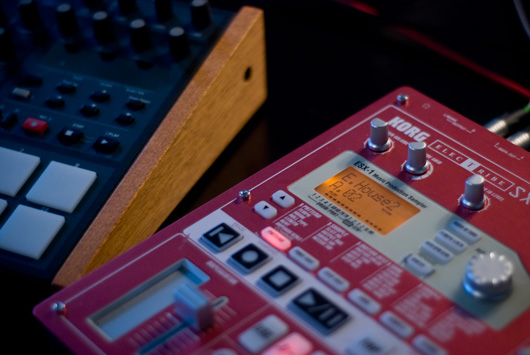
Now, you’re doing Items & Things. What was the impetus for starting that and breaking off from Minus?
We just felt that musically, we were going in a different direction. It was a natural progression, just children leaving home, birds leaving the nest.
How do you see Items & Things being different?
The three of us come from different backgrounds. Marc is definitely a new wave guy. Troy is a little more industrial. I’m more of a Prince/funk/disco person. We just wanted something more than the stripped-down Minus sound. [In particular,] the stuff that Marc was producing didn’t fit anymore. Rich didn’t really see it, he wasn’t taking it for Minus. We all felt at the same time, “We should really do this on our own. We really believe in this music.” And we were getting so many cool demos from people, so why not do it? We just wanted to get this music out there. It felt like the right time.
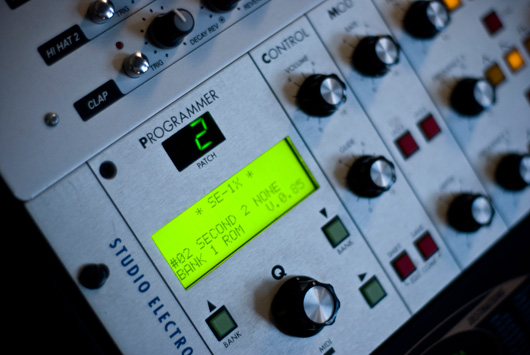
Do you, Marc, and Troy ever work on tunes together?
Sure. I really enjoy going to Marc’s studio, especially because he’s got so much gear. He’s got a drumkit, he’s a crazy drummer as well. It’s super fun, we just go nuts there.
And you guys all bounce ideas off each other?
Absolutely. It’s really important to have people for feedback. We all get stuck in a sound or listening too long, and you just need a fresh ear. Marc will call me up and say, “Can you listen to this? I don’t know if it’s good or bad.” I’ll do the same. We definitely give each other pointers and try to help each other as best we can.
